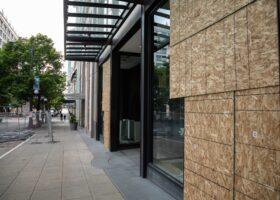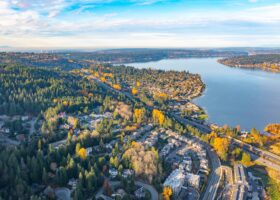Seattle’s broken budget needs a scorecard – It’s imperative to make your voice heard
November 17, 2022
The people of Seattle have spoken loudly regarding its priorities for the city, but apparently the majority of the City Council isn’t listening. According to recent polling by the Seattle Metropolitan Chamber of Commerce, public safety is the top priority, second only to homelessness. In his budget released in September, Mayor Bruce Harrell listened to citizens and called for returning parking enforcement back to the police department and fully funds a Comprehensive Police Recruitment and Retention Plan.
Yet, the new city budget proposal unveiled by City Councilmember Teresa Mosqueda this week doubles down on a failed public safety strategy that includes:
- Diverting police salary savings away from SPD
- Eliminating officer positions at a time when staffing levels are at their lowest in 30 years.
- Removes the mayor’s retention bonuses for police officers
- And continues the failed programs that are not working to help the homeless, and treat those with mental illness and drug addiction who are on our streets.
It is imperative you make your voice heard.
Submit written public comment by clicking here. Tell the City Council before Monday the 21st that we don’t need more taxes and reduced public safety spending.
Mosqueda’s budget also calls for new taxes. Although the city faces an estimated $118 million revenue “shortfall,” the problem isn’t that they lack money. The spending has been unsustainable. Over the past decade, the general fund and operating fund taxes grew four times faster than the economy and the population. The current budget is roughly $7.4 billion. In 2013, it was just $4 billion. Taxes since then have grown by 94 percent.
At the same time, police spending increased by only 20 percent, and much of that spending went to overtime pay for fewer officers working more hours to cover a larger city. Instead of lower crime rates, we’re experiencing the worst violent crime in 30 years.
Homelessness spending more than doubled between 2018-2022 alone, from $70 million in 2018 to $173 million in 2022 – the entire Seattle metro region spends more than $1 billion annually.
Yet the homelessness crisis has not improved in any significant way. The city continues to deal with homeless RVs convoys and drug camps.
One of the reasons is that they don’t spend the money well. That’s not just our opinion. It’s the conclusion of a recent state performance audit on local government homelessness spending. According to the audit, “most lacked a data-driven prioritization process to identify and address unmet needs. Instead of data, funding priorities were often driven by grant requirements, consultation with homelessness boards, and approval from elected officials.”
Despite years of economic prosperity, the city has consistently raised taxes, even during the pandemic lockdowns, yet the top crises important to voters have only worsened because it wasn’t invested properly.
In a recent Seattle times op/ed, Councilmembers Alex Pederson and Sara Nelson wrote that “a better way to achieve a sustainable budget is to stabilize the city government’s own administrative expenses, make public safety a priority and optimize the use of existing funds.”
That will no doubt require tough choices, but they are the right choices for Seattle. While public safety needs greater investment, simply spending more money is not a solution to address crime or homelessness. It’s not just an issue of the city raising taxes and spending additional tax dollars. How well have they spend it?
Imagine if the city budget had metrics and a performance scorecard that answered the following questions:
- What is the spending going to accomplish?
- What does the city hope to achieve as a result of the funding?
- What kind of scorecard does the city aim to have by the next budget cycle?
These questions need to be answered before the City Council adopts a new budget at the end of the month if we are to expect the situation to change in a positive direction.
If not, what we’ll see is simply more of the same: mention something about not addressing public safety, businesses leaving the city…and a heavier tax burden on citizens who see no return of investment when it comes to issues they clearly care about due to misspending.




